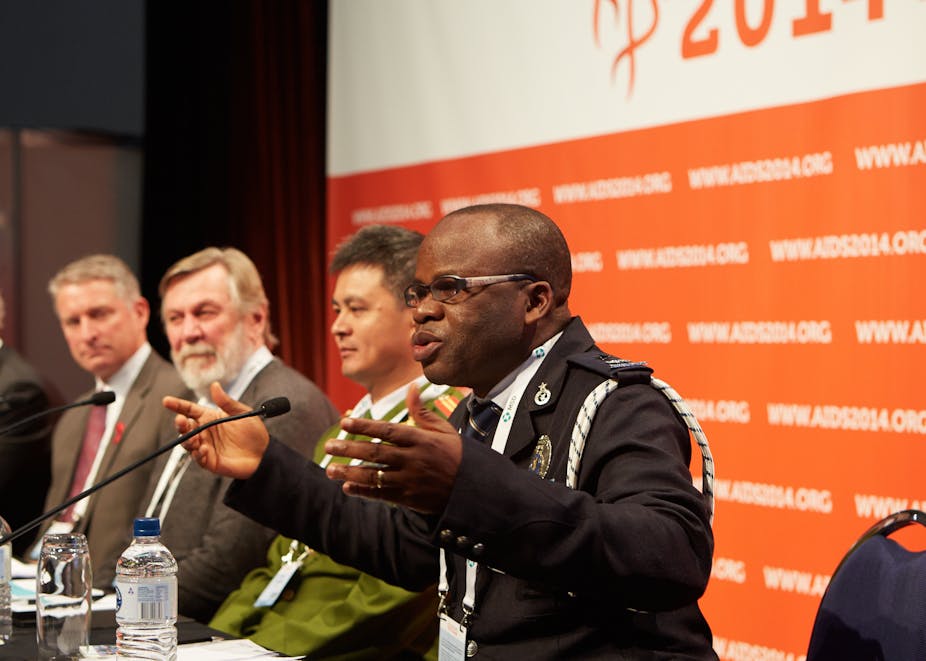Watch the video of Professor Nick Crofts talking about the report To Protect and Serve: How Police, Sex Workers, and People Who Use Drugs Are Joining Forces to Improve Health and Human Rights below.
Professor Nick Crofts is an honorary professorial fellow at the School of Population and Global Health at the University of Melbourne, and director of the Centre for Law Enforcement and Public Health.
One of the centre’s projects is working towards effective engagement of police in the HIV response. Over 10,000 policemen from 15 countries and quite a number of police agencies have signed a public statement committing themselves to support harm reduction approaches to policing in vulnerable communities.
Professor Crofts says his motivation for this work is the inadequate investigation of the benefits of a good relationship between police and communities.
Transcript: Today, we launched a report with the Open Society Foundations, of examples of good practice of police working in collaboration with HIV programs.
In most circumstances or in many circumstances, particularly in developing countries, the police have been part of the problem: their behaviours in targeting populations at risk of HIV have led to decreased access to services, to prevention and treatment and care services, and increased HIV incidence.
I’ve seen the abuses that police carry out against injecting drug users, against homeless people, against marginalised communities in lots of different countries.
And there’s much research, there’s a large body of literature on the impact of these policing practices on the HIV epidemic, and the fact that targeting injecting drug users and taking syringes, targeting sex workers and taking condoms, or using condoms as evidence of prostitution under criminal acts and so on… there’s plenty of evidence that these police practices promote the transmission from HIV, drive people away from treatment care, prevention services and increase risk for those vulnerable communities.
This is changing, and we’re starting to see more and more police – individual police and police agencies – start to form partnerships with HIV programs with civil society.
This, in turn, is starting to have an impact on policy. Police are important determinants of policy because they report back what is coming from the front line, what they have to deal with. And policy that does not take into account the knowledge and the experience and the understanding of police, is not going to be successful.
So increasingly, around the world, we are bringing police into this fight for human rights, for evidence-based policing practice, for humane policy – all of it aimed at increasing the rights of populations at risk of HIV and decreasing the HIV epidemic.

